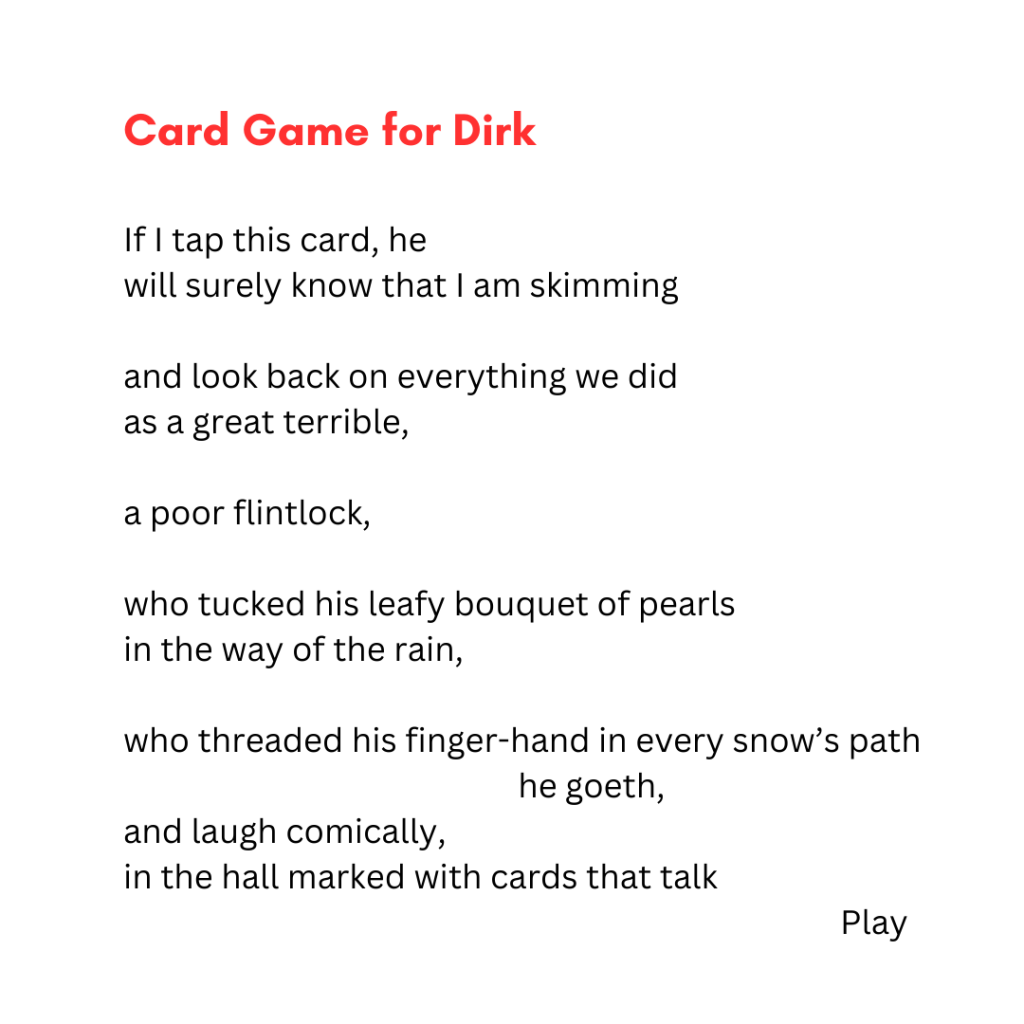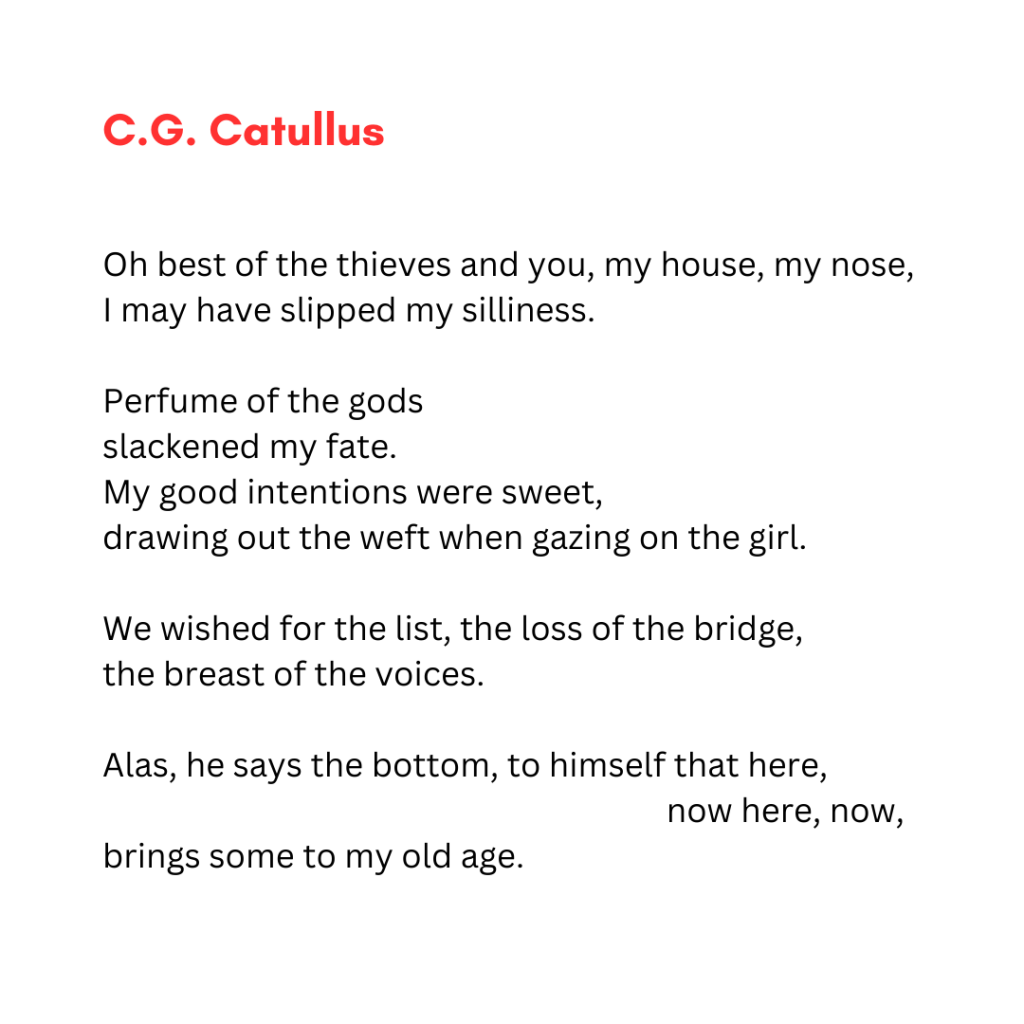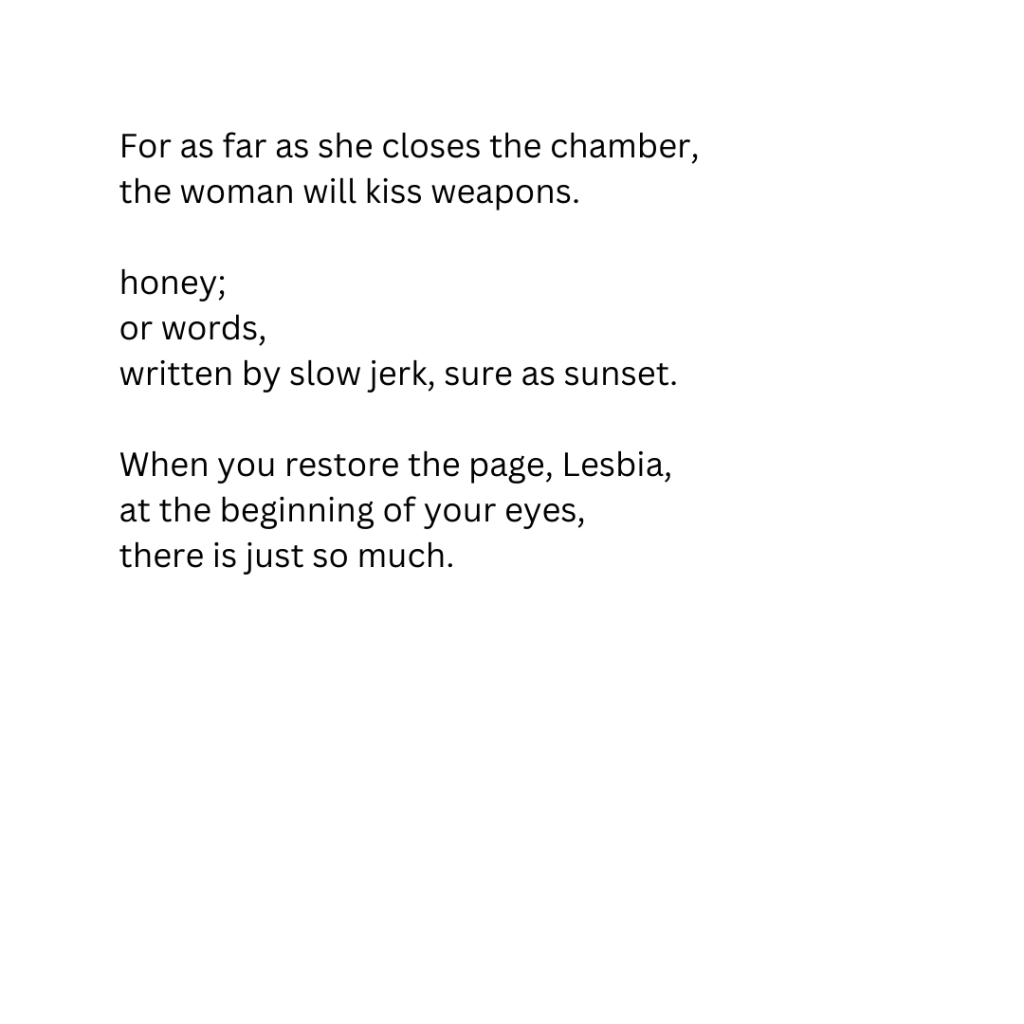On Tuesday, I attended ‘Making A.I. work for writers’, part of a series of workshops organised by ARU’s A.I. working group, in collaboration with my own Cambridge Writing Centre. The emphasis here was on Lynda Clark’s concept of A.I. as ‘creative amplification’; that is, as a tool to use in conjunction with one’s own writing practices to produce new and surprising effects.
For the second half of the workshop, we wrestled with Max Woolf’s GPT2-Simple, a Colaboratory Notebook for training your own pet text-generating A.I. Think of it this way: freely and commercially available language-modelling software like Google Gemini and ChatGPT 3.0 is trained over months, using vast swathes of harvested data so that it can produce statements and respond to prompts in human-like fashion. We trained ours over the span of 20 minutes, using about 50,000 words (or, in my case, almost everything I’ve written in the past decade), so that each one could produce random assemblages of text which crudely resemble the work fed into it.
Here is my favourite thing it produced. I’ve added it to this website’s lucky dip with a short explainer:

This isn’t the first time I’ve made a foray into what may be loosely termed ‘A.I. poetry’. For 2017’s Bad Kid Catullus I used a simpler Markov-chain-based text generator to come up with a new Catullus poem via Catullus’ existing oeuvre and Google Translate. I’ve added this to the lucky dip too. Here it is in its Instagrammable square-image form:

